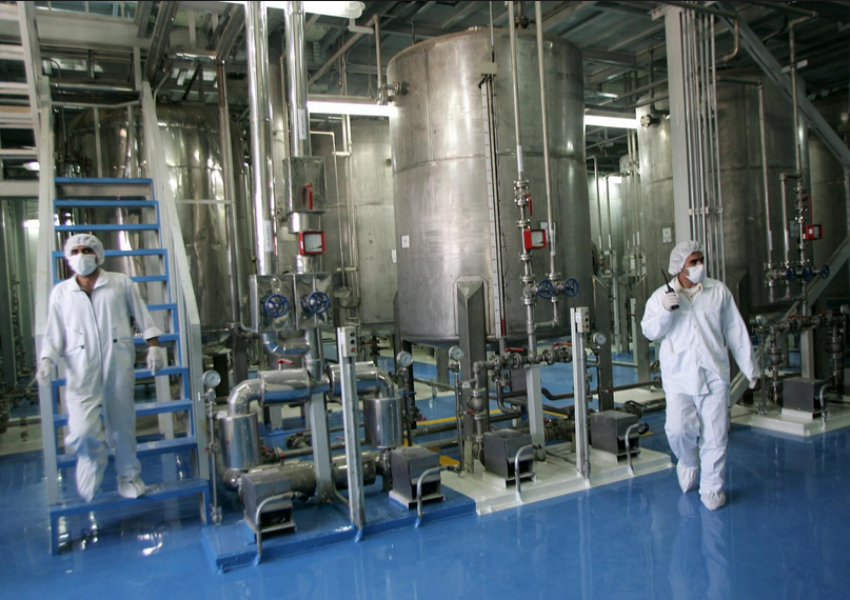
Government, Parliament Dispute Way Forward Over Nuclear Program
Iran might step up its nuclear program even further beyond the limits set by its 2015 agreement with world powers, according to the outline of a bill just passed by the Iranian parliament (Majles). The bill would also reduce Iran’s cooperation with the United Nations nuclear watchdog, the International Atomic Energy Agency (IAEA).
Although the legislation is a long way from final approval by the Majles and endorsement by the watchdog Guardian Council, it has sparked a fierce row between the administration of President Hassan Rouhani and the principlist-dominated parliament.
The Majles first tabled the bill in early November on the anniversary of the 1979 seizure of the United States embassy in Tehran to demonstrate anti-American feeling as the country struggled under the economic impact of harsh US sanction introduced after President Donald Trump withdrew from the deal in 2018. But in November, the Majles approved the bill just as ‘single-urgency,’ meaning it should have been considered by the lawmakers within two weeks.
Following the assassination of Mohsen Fakhrizadeh, nuclear scientist and deputy defense minister, on November 27, the parliament recategorized the bill as ‘double-urgency,’ meant discussions should start almost immediately.
After spokesmen for the Rouhani administration on Monday and Tuesday warned that nuclear matters were beyond parliament’s jurisdiction and were coordinated by the Supreme National Security Council (SNSC), parliamentarians hit back almost immediately.
Mohammad Bagher Ghalibaf (Qalibaf), the parliamentary speaker described the passage of the bill as “a message” to the “enemies of Islamic Iran” that the “one-sided game is over.”
Deputy Mohammad Hossein Farhangi insisted that the Majles had consulted the SNSC before approving the outline legislation. He accused the Rouhani administration of trying to circumventing other political institutions, including the Majles.
Feraydoun Abbasi, chairman of the parliament’s nuclear committee and a former head of the Atomic Energy Organization of Iran (AEOI) who himself survived an assassination attempt in 2010, warned the administration not to intervene in parliamentary procedures. Other lawmakers, Hossein Ali Haji Deligani and Mohammad Reza Pourebrahimi, said the Rouhani administration should not supplant the Majles’ decision-making.
The legislation is far from any final approval. The outlines will be discussed at various Majles committees before being put to a vote for ratification and would then require approval by the Guardian Council, a 12-strong watchdog that considers whether legislation is compatible with the Iranian constitution and with Islamic jurisprudence. The influence of Supreme Leader Ali Khamenei could come into play when and if the legislation reaches the council.
Under the terms of the bill, the AEOI would be required within three months to begin installing at least 1,000 IR-2m centrifuges and to enrich uranium to 20 percent – Iran currently enriches to 4.5 percent – and within two months to stop any IAEA inspectors’ access beyond that required by the Additional Protocol of the Non-Proliferation Treaty (NPT).
All of these measures would lead Iran far beyond the gradual steps it has already taken beyond the limits of the JCPOA, steps Tehran began in 2019 a year after Trump withdrew from the deal.
In the meantime, some Iranian politicians including lawmaker Mohammad Nabavian have suggested Iran’s leaders might be able to use the parliamentary bill as leverage to secure early concessions over sanctions. Rouhani – who has portrayed a return to the JCPOA as relatively straightforward and reached out to president-elect Joe Biden – shows no sign of risking such a gambit.








